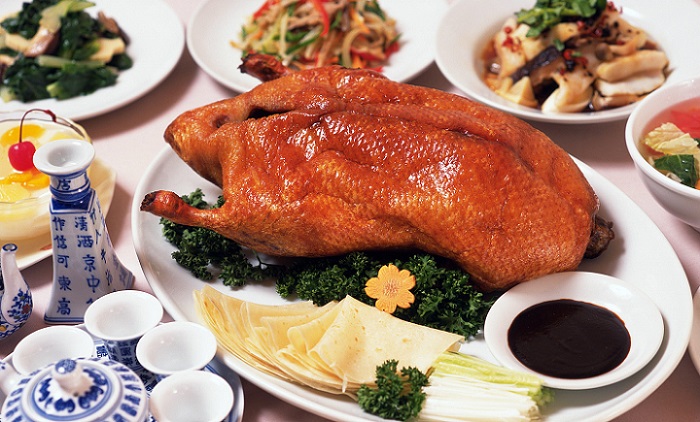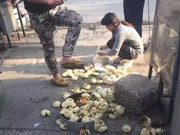


China’s food safety issues are costing the country over ten thousand lives and 5 billion yuan (750 million USD) in economic losses through 2015 alone, said Li Chunhua, head of the Chinese Academy of Social Sciences City Development and Environment Institute. The institute released the “Urban Blue Book No.9” at the China Urban Development Summit Forum on September 30, 2016.
The factors influencing food safety are numerous: soil pollution, air pollution, water pollution, fertilizer usage, and abuse of antibiotics. Other major factors include a lack of social conscious and spirit of contract, an incorrect development philosophy, and imperfect supervision methods.
Li also pointed out that modern pollutants have entered the soil necessary for sustaining human life. Currently, China has at least 13 to 16 million mu (0.9 to 1 million hectares) of polluted soil. Approximately 80 percent of the agricultural chemicals entering the environment directly threaten edible daily produce.
He went on to say that China uses 35% of the global fertilizer supply, equivalent to the US and India combined. This highlights a serious situation of over-usage. The average hectare of farmland in China uses 21.9 kilograms of fertilizer, far exceeding the global average of 8 kilograms. It’s 2.6 times America’s amount and 2.5 times the EU’s.
Water pollution is also disturbing. A 2015 report of 5,118 water-quality monitoring stations found that 61.3 percent were of either relatively poor quality or extremely poor quality. Water pollution directly influences drinking water, as well as food and drink safety.
The excessive use of antibiotics in animal husbandry and aquaculture already poses a critical threat to food safety. According a Ministry of Health investigation, China’s annual output of antibiotics is approximately 210,000 tons. Aside from the 30,000 tons exported abroad, the rest is used domestically. Chinese consumption per capita of raw materials is around 138 grams, far greater than America’s 13 grams. A third of that enters human bodies through meat consumption. Moreover, overuse of antibiotics causes various mental illnesses and defects. A third of China’s disabled people root from an abuse of antibiotics.
Li also indicated that gutter oil, used oil recovered from gutters and sewers before being reprocessed and sold back to restaurants, is carcinogenic. With weak supervision and high profits, those selling gutter oil completely abandon any bottom-line for human integrity. Every year, the amount of gutter oil making its way back to restaurants is between 2 and 3 million tons.

 Who Will Fit The Chinese Roles In Game Of Thrones?
Who Will Fit The Chinese Roles In Game Of Thrones? China's Hubei Shennongjia added to World Heritage List
China's Hubei Shennongjia added to World Heritage List Cute Dog At Fruit Stand Becomes Latest Internet Sensation
Cute Dog At Fruit Stand Becomes Latest Internet Sensation Top 10 livable Chinese cities
Top 10 livable Chinese cities The last primitive tribe in China
The last primitive tribe in China China's first intelligent security robot debuts in Chongqing
China's first intelligent security robot debuts in Chongqing A Total of 3,552 Subscribers Vanish In Two Days; YouTube Closes All Doors to Users’ Inquiries
A Total of 3,552 Subscribers Vanish In Two Days; YouTube Closes All Doors to Users’ Inquiries Out of this world! Futuristic UFO-shaped yacht has its own garden and a stunning underwater viewing deck
Out of this world! Futuristic UFO-shaped yacht has its own garden and a stunning underwater viewing deck An old tea house in Chengdu
An old tea house in Chengdu Furious Customer Crushes All the Buns from Vendor Just Because He Was Given the Wrong Flavor
Furious Customer Crushes All the Buns from Vendor Just Because He Was Given the Wrong Flavor